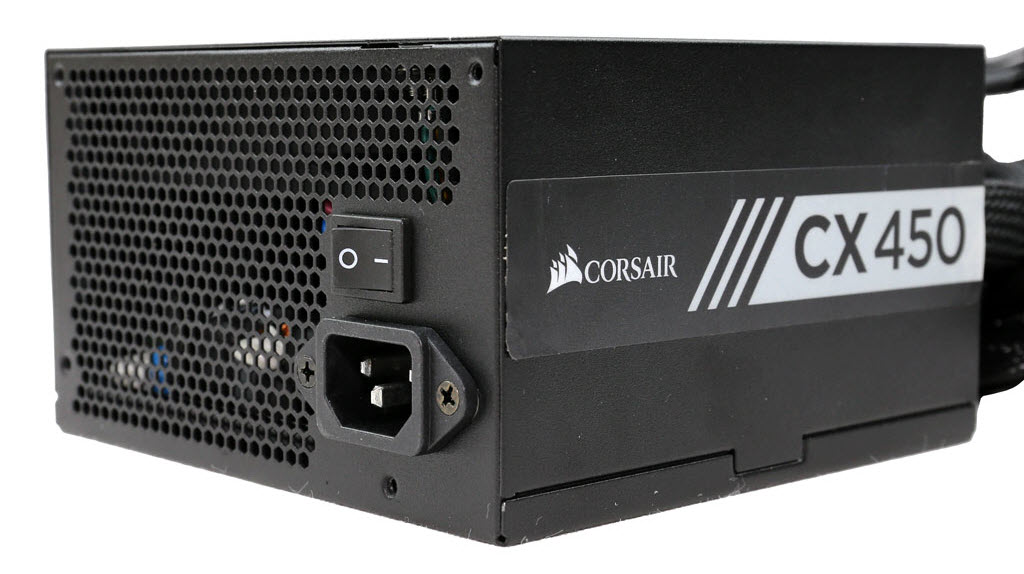Corsair CX450 PSU Review: Two Flavors, Tested and Compared
Why you can trust Tom's Hardware
Final Analysis
CWT's Corsair CX450 offered higher overall performance and was quieter, while the Great Wall CX450 served up better efficiency and a superior 5VSB rail. A look inside also revealed different cooling fans: CWT went with a fluid dynamic bearing-based fan, which is the same type a number of high-end PSUs use, while Great Wall chose a plain sleeve bearing fan. Interestingly, Corsair claims that its CX450 employs a rifle bearing fan. That'd be the middle ground between the worlds of fluid dynamic and sleeve bearings. [Update 8/1/2018: We decided to fully dismantle the fans and we found out that indeed both of them use a rifle bearing, so Corsair was right about the specifications of the fans).
We preferred CWT's version of Corsair's CX450, but that doesn't mean you should avoid Great Wall's. On the contrary, it is based on a very good platform, especially when you take into account its affordable price and the five-year warranty shared between both implementations.
Should you find yourself in the position to pick, we recommend grabbing CWT's CX450 for its quieter operation. On top of that, its transient response is better. But if you're shopping online and can't pick the platform you get, don't shy away from the Corsair CX450 due to its multiple personalities. In this budget category, you won't be disappointed by either of them.
In the end, both CX450s are quite good at this price point. If you don't want to go super cheap with EVGA's 450 BT, which sometimes sells for as little as $30, then Corsair's CX450 is ideal. Both versions of the CX450 use modern platforms that are more efficient, less noisy and offer better build quality than the 450 BT.
MORE: Best Power Supplies
MORE: How We Test Power Supplies
MORE: All Power Supply Content
Get Tom's Hardware's best news and in-depth reviews, straight to your inbox.
Disclaimer: Aris Mpitziopoulos is Tom's Hardware's PSU reviewer. He is also the Chief Testing Engineer of Cybenetics and developed the Cybenetics certification methodologies apart from his role on Tom's Hardware. Neither Tom's Hardware nor its parent company, Purch Media, are financially involved with Cybenetics. Aris does not perform the actual certifications for Cybenetics.
Current page: Final Analysis
Prev Page Performance, Value, Noise & Efficiency
Aris Mpitziopoulos is a contributing editor at Tom's Hardware, covering PSUs.
-
jpe1701 Oh thank you Aris, I've been waiting for a review of this. It's always low in price and tempting to recommend but there weren't any reviews.Reply -
Darkbreeze Why do both of the review summary boxes list the Great Wall version? Both the one on the front page and the last page are the same. Seems like you ought to include a summary box for both versions since there seems to be some major differences between them. And even more so since you seem to indicate the CWT version is the better unit, but only include a summary box for the Great Wall unit.Reply -
Darkbreeze I totally understand. No worries mate. Editorial has a bad habit of effectively pooping all over the independent contributors writing as well. Not surprising that they are doing so with your work, but I sure wish somebody in editorial would make a few changes to policy that keeps the finished product a bit more in line with what the contributor intended, which often they don't. In this case, it totally makes zero sense that they didn't leave it as you had it.Reply -
Rexper ReplyWe preferred CWT's version of Corsair's CX450, but that doesn't mean you should avoid Great Wall's
Not that we have a choice.
Great article, once again, Aris!
There is some controversy appearing relating to the fan bearings used in the CX450. JonnyGURU, who works at Corsair, claims both CX450 versions use a rifle bearing.
Unfortunately, we can't know for certain until someone dismantles the fan.
http://www.jonnyguru.com/forums/showthread.php?t=15943&page=2 -
Darkbreeze I don't think it even makes a tremendous amount of difference. Fan failure on power supplies due to bearing fatigue is the least of the issues I've usually seen in the past on older units. Plus, it's not terribly difficult to replace a PSU fan if you have at least of a modicum of common sense and don't possess four thumbs.Reply
If fan noise is the biggest worry, or bearing failure over the long term, then I'd say these are winners for the price point. Most would never hear them over the sound of the rest of the system in any case.
